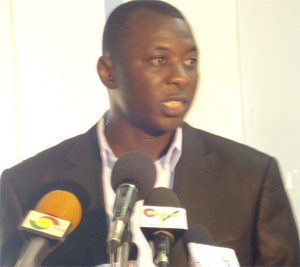 Dr. Mohammed Amin Adam, ACEP boss
Dr. Mohammed Amin Adam, ACEP boss
Those who presented false information to Parliament in connection with the power purchase deal between the Government of Ghana and Dubai’s African and Middle East Resources Investment Company (AMERI) must be prosecuted, Ben Boakye, Director of Operations and Resource Mobilisation of energy think tank African Centre for Energy Policy (ACEP) has said.
Norwegian newspaper, VG, recently exposed that one Umar Farooq Zahoor, a known criminal on Interpol’s wanted list, witnessed the deal for AMERI. The paper also reported that Ghana could have bought the turbines at $220 million rather than the $510 million Build, Operate, Own, and Transfer (BOOT) deal reached between the two parties.
The Norwegian paper also said despite AMERI having an address the firm’s physical location was untraceable. The website for the firm, according to the paper, was also constructed and put up just two months ago.
Mr Boakye said on Class91.3fm’s Executive Breakfast Show on Wednesday that the middleman to whom AMERI subcontracted the deal, METCA, will get $350 million from the entire transaction. To him, Ghana could have cut down on cost if the government had bought the 225MW turbines from a direct source.
“So what that means is that if Ghana had even gone to arrange with APR, METCA, or any other company that could supply the equipment directly, we could have saved in excess of 160 million on the equipment cost, alone.
“So, this is the bigger question: why did we not make that diligent effort to reach out to people everywhere in the world, who can supply this equipment but rather got fixated with AMERI and thought that they were the only ones who could give us the power barges at such an exorbitant cost? These are the value-for-money questions we have been raising. We haven’t accused anybody of corruption, but we thought the country could have had a better deal. And, therefore, those who lied to parliament need to come and answer for the reasons why they thought that they should put falsehood into the minds of the parliamentarians and not allow them to do the due diligence that they would have done if they knew that Ghana could have bought the plant for $220 million,” Mr Boakye pointed out.
In his estimation, “Ghana had a raw deal and people have got to answer for it.”
“If it turns out that people deliberately deceived Parliament, people deliberately got Ghana into this debt, then they have to be punished. We have to have a process of prosecuting people so that this becomes an example for future transactions of this nature, other than that people will just be entering into such deals and the country will suffer,” he added, saying: “Imagine what $160 million can do to Ghana.”
Meanwhile, Parliament has said it followed due process in its consideration and passage of the deal.
In a statement issued by Deputy Public Affairs Director, Kate Addo, the House said: “Parliament wishes to inform the general public that due process was followed in the discharge of its duties.”
“The said agreement was first brought to Parliament on the 3rd of March 2015 and was referred to the Committee on Mines and Energy in accordance with the rules of the House.
“The Committee in deliberating on the agreement asked for additional information from the Ministry of Power which was duly provided. Further, the Committee invited the Sector Minister and other technical officers to attend and proffer expert advice on how to proceed with the agreement which advice was taken and acted upon by the Committee,” the statement added.
Parliament also denied criticisms that the agreement was rushed through without proper scrutiny of the Bill.
“The Office of Parliament will like to place on record that this is not the case. The said Bill was brought before the House and laid on the 3rd of March 2015. Once the agreement was laid, the document became a public document and any individual or group of persons who wanted to comment on it could have done so in a memo to the Committee or to the House as a whole.
“The said agreement was approved on the 20th of March 2015, 18 clear days after it had been brought to the House. Invocation of order 80(1) during the consideration of the agreement does not in any way imply that the agreement was rushed through the House. On the contrary, it is an indication of the importance attached to the agreement. The official report of Parliament also indicated that no Member of Parliament wanted to speak on the matter and was turned down,” the statement clarified.